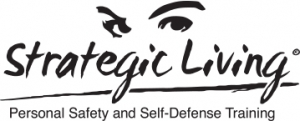What can you do when someone you care about disregards your boundaries? The ones you thought you were so clear about?
Depends.
Today I won’t be giving the “one answer,” because there isn’t one answer most of the time. I’ll outline more of a process. However, the crucial approach is your focus. If your intent is to punish someone, it will be far less effective. Your focus should be on YOUR comfort and safety. Focus on YOURself.
We’ll begin with the assumption that this is someone you know, as most conflict happens with people you know. Consider:
- What’s the fundamental nature of this relationship? Family? Good friend? Neighbor? Work colleague? Supervisor? Social acquaintance? Boss? Coach?
- What is the history? What is your past experience in this relationship?
- What are the power dynamics? Have they changed over time?
- What does this relationship mean to you? Not what you think it should mean to you.
- Where is this relationship on the continuum between adversarial and collaborative?
- How important is this person in your life?
Think about that last point again — how important this person is in your life. A more important relationship can generally stand more discussion about expectations, hopes, and trust. Dr. Brené Brown has noted that having boundaries respected is a significant indicator of trust, and we confer more trust on those who acknowledge and respect boundaries (including their own).
Notice I’m not saying “use these words” or “that body language.” Those choices should follow the contours of the relationship, where you’ve been with it in the past and where you see its future.
One instance. a student had a romantic interest abroad. He lived in Eurpoe — when it was evening over there it was past midnight in Seattle. He tended to phone her in his evening, usually around 2:00 am her time. They had a few conversations about it, she asked him not to phone so late, and he would always apologize and say he’d try to call earlier but just need to hear her voice. And he kept phoning her at 2 am. Yes, she kept answering.
Another instance. Actually, a number of instances since I’ve heard this same basic story over and over. Student is dating a very smart, witty, articulate, funny person. They usually have a great time. However, every so often if they disagree, this person’s cleverness would turn contemptuous. The discussion would move quickly from whatever they disagreed about to student’s “fundamental flaws.” In some cases they broke up but got back together. They promised they’d change — until the next disagreement.
In both instances, there was little downside for the other person to continue their behavior. In the first case, to keep phoning at his convenience since she didn’t reinforce her boundary by not answering. In the second, to keep up personal attacks instead of working through differences. Why are these boundaries ignored? Maybe:
- They don’t agree with your boundaries but won’t say that outright
- They continue to get what they want, with no appreciable consequences
- They are solidifying a power imbalance
- This relationship is not as important to them as it is to you
- They have other needs they are reluctant to express
Remember, there will be disagreements in any relationship of value. The issues lies in how those disagreements are expressed and processed.
The next level is to recognize that ignoring a boundary it yet another boundary violation, and articulate that. Possibilities:
“Honey, we’d talked about you phoning me so late, and you always agree to phone earlier. But that doesn’t happen. I love talking with you, and I need uninterrupted sleep. I’m turning my phone off at 10 pm Seattle time. Please call earlier.”
“Honey, we’d talked about you phoning me so late, and you always agree to phone earlier. But that doesn’t happen, and I see that it really doesn’t work with your schedule. I love talking with you, and I need more uninterrupted sleep. How about if we schedule our phone calls, so I can plan for more quality sleep?”
“Every time we disagree, it devolves into name-calling and personal attacks. That’s not how I want to resolve our differences! I’m going to call a “time out” next time a discussion begins to get off-track. Maybe I’ll take a walk, or go for some tea. And I’ll expect that when I come back we can come to a better way of resolution.”
“Whenever we disagree, you get angry quickly and resort to name-calling. We discuss this, you swear you’ll change, yet the next disagreement finds the same pattern on repeat. Being able to talk about feelings and issues is important to me, and important in every meaningful relationship I’m in. What do you need to honor that?”
The idea is setting a more concrete boundary, involving your level of contact and time with that person. And then sticking to it. While ehe intent is your self-care, the other person may feel it as punitive. So be sure it’s a boundary you are willing to enforce!

 Your voice is your most effective safety tool. Yet it’s the tool most folk, especially women and girls, are reluctant to use. “Do I have to say anything?” is a too-common question in class. The answer is no, you don’t HAVE to do or say anything you don’t want to, and there are some cases where saying nothing may be your best choice. That being said, there are reasons why using your voice is an essential tool.
Your voice is your most effective safety tool. Yet it’s the tool most folk, especially women and girls, are reluctant to use. “Do I have to say anything?” is a too-common question in class. The answer is no, you don’t HAVE to do or say anything you don’t want to, and there are some cases where saying nothing may be your best choice. That being said, there are reasons why using your voice is an essential tool.